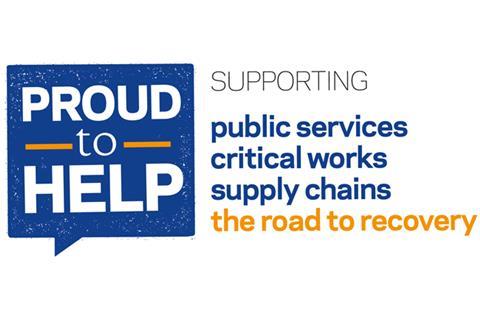The private and public sectors have united in our hour of need


Creating healthcare capacity throughout the UK has led to some amazingly fast and innovative solutions equalling anything China did at the outset of the pandemic. Irrespective of being past competitors, we are all fighting for a common cause, and there’s been a noticeable removal of traditional boundaries between public and private sector operators in an effort to deliver healthcare facilities quickly, and to keep the economy going with the construction of other essential developments.
In the fight for a common cause, there is a noticeable removal of the traditional boundaries between public and private sector operators in an effort to deliver healthcare facilities quickly and to keep the economy going with the construction of other essential developments.
Contractors are working alongside military personnel to create hybrid ‘field hospitals’ in days rather than months with the result than 10,000 back up beds have been delivered for front line NHS services. Whether these are critical care or ‘step down’ facilities, they all contribute to lifting pressure off acute NHS providers. Those involved have been awarded key worker status including contractor staff and their supply chains of specialists and sub-contractors – they are all building for a common cause.
Major contractors have been joined by regional and local contractors. Specialist fabricators for modular bed head units have been providing solutions for both field hospitals and NHS hospital ward repurposing. Most major contractors have long established relationships with offsite manufacturers which have had their capacity accelerated to meet forecasted demand. The need for boxed and ready to go call systems, the release of specialist copper tubing used for piped medical gasses, health regulations compliant partitioning, floor finishes and lighting has led to manufacturers, suppliers and contractors forming collaborative networks. Those involved are not looking for publicity, they are just getting on with battling the virus.
It is likely that government with National Health England will have created enough critical care capacity once the Nightingale Hospital programme is finished over the next 3 weeks. The pressure is then likely to shift to rehabilitation and step-down care facilities. These units should be focussed on providing long term capacity where the bed blocking problems of the past have been a significant concern. Again, it will be for our contractors and their supply chains who will be central to realising solutions at an affordable price in the right location, whilst using powers introduced to meet covid-19 challenges.
The value of contractor frameworks has shifted from being procurement vehicles towards being a means to fast track solutions, set in a fully transparent commercial envelope ensures the taxpayer secures demonstrable value. These arrangements also ensure contractors and their suppliers are paid a proper price with proven products speedily delivered. The use of these frameworks protects sound governance whilst substantially reduces ‘red tape’. Maybe the die has been cast for contracting in the post-covid-19 future.
Roger Pulham is the head of the health and care sector at Gleeds
Tell us about the projects that make you proud to help
Building has launched its Proud to Help campaign to highlight all the work construction is doing to support the country’s public services, critical works and supply chains, as well as setting it back on the road to recovery. Contact us at newsdesk@building.co.uk with the subject line ‘Proud to help’ or via LinkedIn or Twitter with your #ProudtoHelp stories



























No comments yet